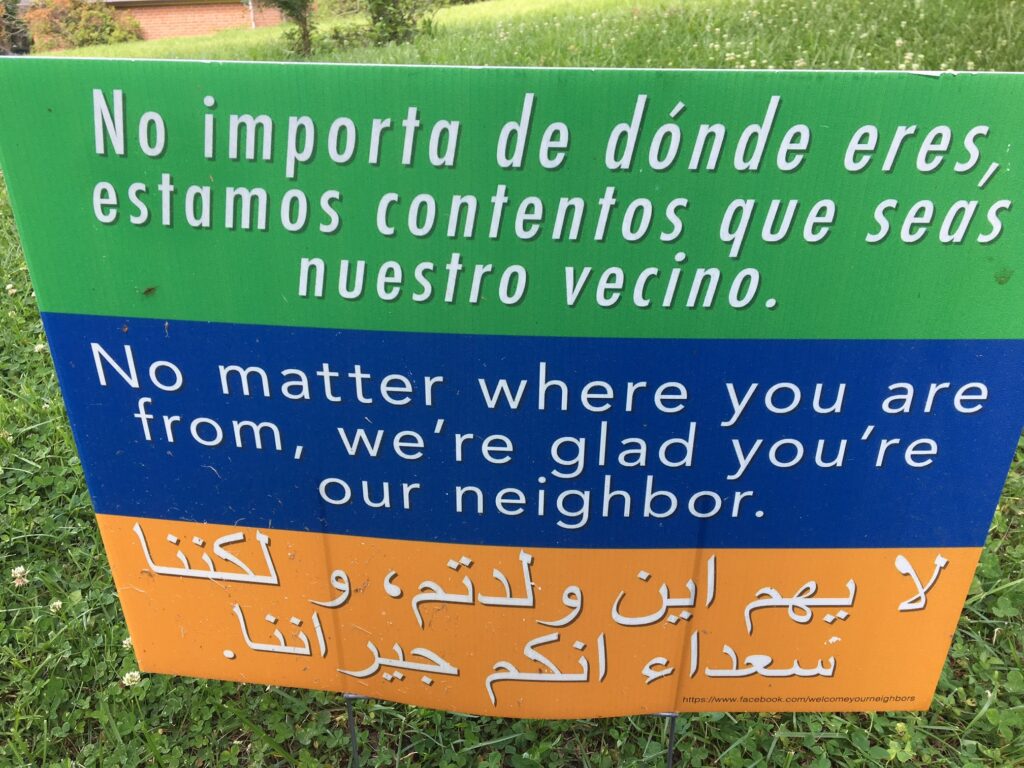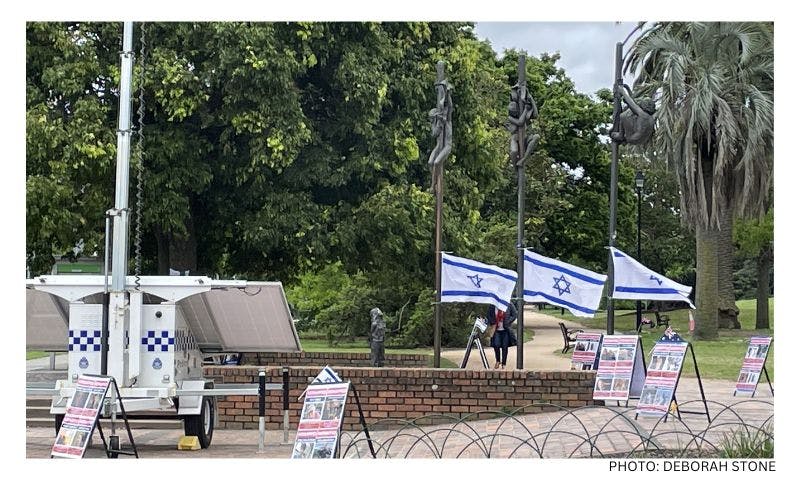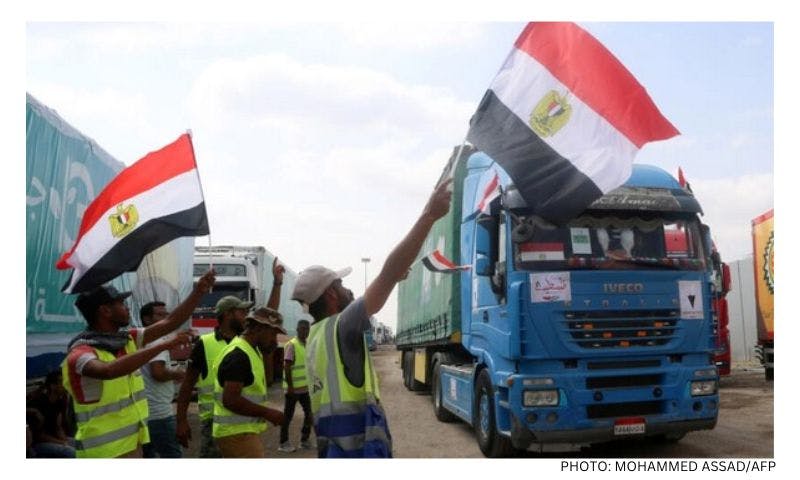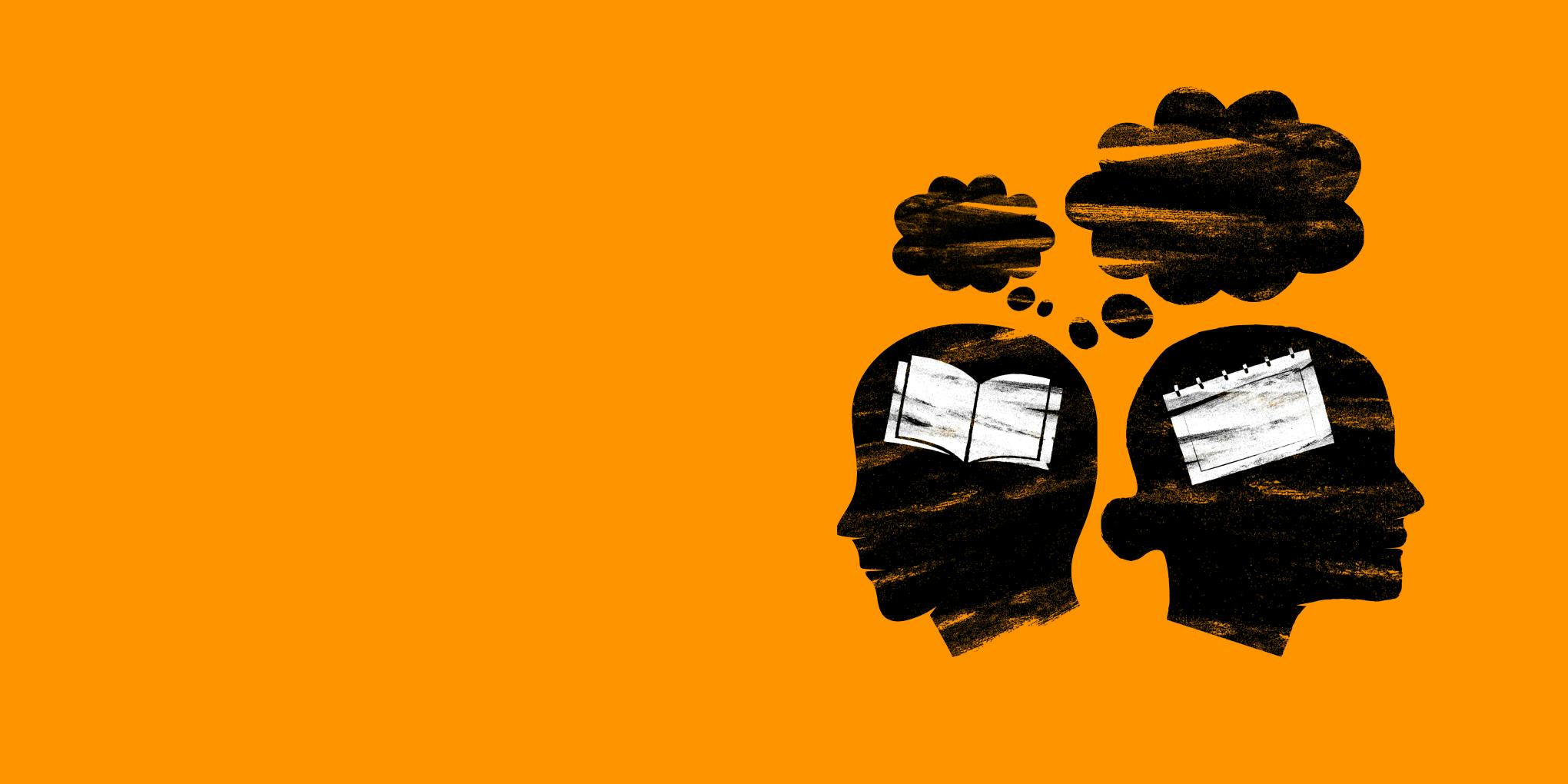Published: 19 May 2017
Last updated: 4 March 2024
It was around day five of Trump’s presidency; the administration was in blitzkrieg mode and unleashing more executive orders than anyone could keep up with. Waking from unsettled sleep, I abstractly scanned my phone for Trump news, something I did obsessively in the first few weeks after he took office.
My attention was caught by an article about Temple Sinai, my local synagogue, and the refugee family we were planning to sponsor. I had joined their refugee resettlement committee a few months earlier and become very involved in the preparations for the imminent arrival of a Syrian family. “The arrival of Temple Sinai’s refugee family, who have been waiting for years and have come so close to finding a safe haven, has now been put off indefinitely,” the article said.
I still remember the sick, hollow feeling that overcame me. The executive order, titled “Protecting the Nation from Terrorist Attacks by Foreign Nationals”, more commonly known as the Muslim ban, suspended all refugee admissions and resettlements from any country to allow for what Trump called ‘extreme vetting’. It also ordered an immediate temporary halt to the admission of all people from Iraq, Iran, Sudan, Libya, Somalia and Yemen, as well as Syria. Mere days from boarding an aeroplane to a new life, the refugee family were stopped in their tracks. Just like that, they weren’t coming. It is difficult to reckon with this sort of callousness.
The Muslim ban is back in court; the Trump administration now refer to a ‘travel ban’ hoping that this anodyne term will whitewash the vitriol and bigotry at its core. In recent weeks they erased the White House web page with Trump’s campaign calls for the prevention of Muslim immigration to the US but they haven’t erased it from my memory.
Less than 24 hours after that first executive order was issued, something seemed to mobilise and shift in the American consciousness. The images of lawyers sitting cross-legged on the grungy floors of airports, working round the clock on their laptops filing writs, stuck with me, as did the spontaneous eruptions of demonstrations greeting new arrivals. In the darkness, and it did feel so very dark, I got glimpses of the shining America, big-hearted, generous, deeply committed to justice and freedom, willing to stand up and be counted.
But sometimes, even that isn’t enough. Though it is heartening that the executive order was eventually rescinded and struck down in court, twice, it didn’t help the refugee families who were boarding planes and in process to arrive in the US. It certainly didn’t help our refugee family. Refugee visas are highly time sensitive. If refugees can't enter the United States within their allotted time window, they must usually begin the entire vetting process again. I will never know the Syrian family who had pinned their hopes on making a new home in America and were scheduled to arrive to the embrace of a Jewish community in Chevy Chase. I don’t know the scars of the war they lived through, only that they survived it to go through the most rigorous vetting procedure imaginable and, just as they were about to arrive, the door was literally slammed in their faces.

For weeks before their imminent arrival, my daughter’s kindergarten class had collected Halal pantry items that would remind the refugee family of home - cumin, cardamom and dried mint, tahini, rice and baklava. It all went into a box together with the cards they had made to welcome the children in the family. It has been in storage for more than three months. My daughter still asks me, “Is our refugee family coming yet?” I have no answer for her.
Desperate to find a way to stay useful and not succumb to the grim clutches of helplessness, I decided to begin volunteering with unsponsored refugees already in the area. Without the umbrella support of a community or organisation, they must feel particularly vulnerable and unwelcome now. Together with an organiser of the Temple Sinai resettlement committee, we started the weekly trip to tutor English to recently arrived refugee women.
…
On a cold, bright day, we make our way to a building complex on the bleak outskirts of a Maryland suburb. As we enter the parking lot, I see a simple sign hung on the nondescript brick apartment block: ’Refugees Welcome Here’. The complex is home mostly to migrants and refugees and there is a sense of camaraderie. We meet in the house of Raha, a refugee from Iran who is already making impressive headway in English. She attends the English language classes at the local college and is dressed in pants. Her hair is uncovered. Her apartment seems to have become a hub for the refugees in the building complex and lessons take place mostly in her small living room. Most of the women we teach either can't attend the English-language college classes because of home or childcare responsibilities, or don’t want to, because they are reluctant to be in the public eye. We are welcomed into a compact, simple living room. It is brightened by a few Persian-style cushions and a small rug under the coffee table. Immediately, Raha sets out home-made cheese pastries and cardamom-scented Arabic coffee and urges us to partake.
A few minutes later Syrian women, Ziya and Manar, arrive. I will be teaching them. They have been in a refugee camp in Jordan for the last few years and have been in the US for less than six months. They are dressed in hijab and long buttoned up coats. They are friendly but formal. I am winging it for this first class. I don’t know their level in English and intend to start with simple introductions and conversation about family. I have brought some colourful children’s books as a jumping off point.
I use my very basic Arabic to introduce myself.
“Marhaba.” Hello. “Ana Gadia.”
My Hebrew also comes in useful as so many words overlap. We proceed in stops and starts, laughing a lot in between. They are eager to learn and faithfully write down the words for table, fridge, window, trees. All the things we can see. But it is harder to address the things we can’t see. It is starting to get warm as the sun heats the window and soon we are all taking off our cardigans and coats. Before I know it, they have taken off their hijabs and long coats. Underneath Ziya wears a sleeveless shirt and pants, and her hair is thick and long.
They tell me how many children they have, counting hesitantly on their fingers and show me photos. Manar shows me pictures of her married daughter still in Jordan and her daughter’s chubby new baby boy. She starts to tell me about her husband, lolling her head to one side and shutting her eyes. Continuing in our lighthearted vein, I start to guess at what she is pantomiming as if in a game of charades.
“Your husband is asleep, while you are hard at work studying English,” I offer with a smile?
“No.”
Maybe, it is more serious. I ask: “He is sick?”
But then I hear a word that I know: “mat.” I recognise it because the word in Hebrew is “met.” Dead.
“Your husband is dead.”
There is a sudden hushed silence, a momentary awkwardness. I offer my condolences, and she shrugs with a smile of resignation that I don’t expect. Nothing more is said about the subject. I can only guess at the circumstances of her husband’s death or how it is related to the war in Syria and I do not want to probe further. I am tired. This is as far as we go today, as far as our limited communication allows. We are just at the beginning. When the lesson is over, something has been loosed and we are no longer strangers. We make plans for the next session. We hug.

…
As someone who periodically uproots myself and my family to go and live in a new country, the notion of home and belonging is an ongoing preoccupation. I try to track the process of acclimatisation and notice when we start to settle in and the rhythms of daily life are no longer marked by the dominating sense of our otherness. For me it often has something to do with finding a like-minded community and most importantly, good coffee, good bread. Sometimes one happens long before the other. More often than not, the transition is not stable and keeps shifting. Living in America as privileged outsiders hesitantly putting down roots in the age of Trump, Raha, Ziya and Manar teach me that sometimes, even out of the most anguished circumstances, home is something you make, not something you find. My hope for America lies with them.
A week or so ago, we were informed that Temple Sinai has been matched with a new family. A family from Afghanistan is coming with four small children any day now. We have rented an apartment and are furnishing it with help from the community. We have taken the box of halal pantry items out of storage and next week I am on the roster to make them dinner. I don’t know much about Afghan food, but I hope to learn. I want to bring them Afghan bread and make them something that feels welcoming and familiar, rice and chicken, perhaps with cumin and dried lime. Something that reminds them of where they are from but also something that tells them that here too, they will make their home, and find their place.
Welcome to America.
This The Jewish Independent article may be republished with this acknowledgement: ‘Reprinted with permission from www.thejewishindependent.com.au ’
Related:
A Shoah of the Syrian people
Refugees – especially a moral test for Jews





Comments
No comments on this article yet. Be the first to add your thoughts.